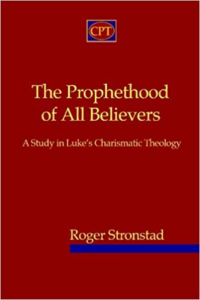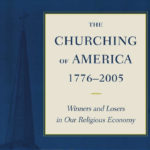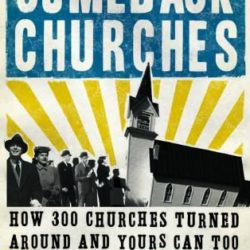 By Alvin (Dobie) Weasel
By Alvin (Dobie) Weasel
Stronstad, Roger. The Prophethood of All Believers: A Study in Luke’s Charismatic Theology. CPT Press, Cleveland TN,2010.
Roger Stronstad wrote a timeless text for pastors and believers to discover the Luke-Acts themes of prophetic deeds and declaration. The experience of Spirit baptism results in prophetic communities that take the gospel to the ends of the earth. He demonstrated from Luke’s primary focus, the importance of following Jesus’ example and instruction to be filled with the Spirit for bold witness as prophets. Stronstad’s strong pneumatology emphasis introduced the book,
“In regard to the subject of this study, namely, ‘the Prophethood of all believers’, my aim of thinking Luke’s thoughts after him is to understand the meaning of Spirit-baptism and its relationship to either salvation or to vocation. When reading Luke-Acts, I have observed that Luke often explicitly relates the presence and activity of the Holy Spirit to a vocation as the Spirit of prophecy.“[1]
Thus the author sets the tone for the book. The treatment of God’s people as subjects who should be empowered by the Holy Spirit to become powerful prophets in word and deed. Stronstad gives a comprehensive examination of this subject, demonstrating that all of God’s people should operate in like anointing.
The Theme
Jesus, the anointed prophet of God, replicated in the lives of the early church and subsequently in the Church as a whole, serves as the theme of The Prophethood of the Believers. Stronstad gives a compelling argument that as Jesus was the anointed prophet mighty in word and deed, the Church has also received that same anointing to speak the truth in power and to confirm His word in works.
Stronstad gives multiple examples of this truth throughout the Book of Acts and beyond. He states that everyone from apostles to deacons walked in both anointed word and works. Moreover, that example indicates believers today should also be anointed for word and works, a very compelling and encouraging argument. If God intends all Spirit-filled believers to operate in the prophetic anointing, and to minister in power (as Jesus) in both word and in deed, it demonstrates the biblical norm and obliges every believer to seek to walk in that same anointing.
The book’s outline, set around the prophetic ministry of Jesus, and how He passed it to the disciples and then to the rest of the Church is demonstrated in the book of Acts and the New Testament. Stronstad begins by examining the prophetic ministry of Jesus, followed by an analysis of the disciples’ prophetic ministry. Subsequent chapters dealt with that same prophetic anointing upon Stephen and Phillip’s deacons and the prophets Barnabas, Agabus, and Peter. He then concludes the book with a chapter on the prophetic anointing exhibited in Paul’s ministry and a synthesis of the prophetic anointing given to all believers.
Most Meaningful Material & Ministry Related Issues
The most meaningful material given was the chapter on, “The Prophethood of All Believers, A Contemporary Relevance.” In this chapter, the author states,
“The Church is to be a community of prophets… In fact, in too many places, the Church views itself as a didactic community rather than as a prophetic community, where sound doctrine is treasured above charismatic action. Indeed, the preaching and teaching of the word displace Spirit-filled, Spirit-led, and Spirit-empowered ministry. The Spirit of prophecy has been quenched, and the gifts of the Spirit have been sanitized and institutionalized. The non-Pentecostal/ non-charismatic Church needs to recapture its prophetic heritage, to which it is either hostile or indifferent.“[2]
Much of the Church reflects this statement by embracing the form and forgetting the function. Not that pastors and other believers should have to choose one over the other, but the Church needs to operate in both. Each need anointed instruction and unction teaching, resulting in supernatural service. As the author declares, may we shake off our spirit of indifference and once again recapture our prophetic heritage.
Significant Quote
Although one can take many good quotes from this book, the one significant quote that needs highlighting is from the chapter on contemporary relevance. In this chapter, the author states,
“All too often, the Pentecostal, charismatic movements focus on the experience, the emotion, and the blessing more than they do on Spirit-filled, Spirit-led, and Spirit-empowered service. This shift in focus from vocation to personal experience, from being world-centered to self-centered, renders the Pentecostal’s service, the charismatic movement just about as impotent as the contemporary service non-Pentecostal, non-charismatic Church. This focus on experience rather than on service is like selling one’s birthright of Spirit-empowered service for the pottage of self-seeking experience and blessing.“[3]
This statement helps to frame the urgency of right focus. Stronstad’s admonishment and his encouragement reinforce Luke’s theme to return to Spirit-filled, Spirit-led, and Spirit-empowered service, which strengthens opportunities for witness in this tumultuous time.
Critical Critique
Stronstad’s research into the reflection of the prophetic ministry of Jesus in the lives of His disciples and subsequently, the lives of all those that became a part of the early Church, is the book’s greatest strength.
If there were any weakness, it would be that the author might serve the book well to set a contrast at the beginning against a more recognized theological subject such as the “priesthood of the believer.” This may give the reader an understanding of how other doctrines remain well known and received, yet this very apparent teaching of scripture the church as a whole has overlooked. And this, much to our detriment, has weakened democratization involving all believers, in the proclamation of the gospel.
Recommendation
The Prophethood of all Believers can assist Christians in the transformational process of becoming all God has redeemed them to be. It reminds the readers that the mission of the Church remains to build the kingdom of God by walking in prophetic word and work. It also encourages the reader to aspire to great things in the spiritual realm. If indeed, the early Church modeled normative Christianity, then each one must strive to regain the lost Spirit-empowered prophetic speech and reclaim our God-given birthright.
Bibliography
Roger Stronstad, The Prophethood of All Believers: A Study in Luke’s Charismatic Theology. CPT Press, Cleveland TN, 2010.
[1] Roger Stronstad, The Prophethood of All Believers: A Study in Luke’s Charismatic Theology (CPT Press, Cleveland TN, 2010) 2.
[2] Stronstad, The Prophethood of All Believers, 121.
[3] Stronstad, The Prophethood of All Believers. 121.
 Alvin (Dobie) Weasel, founder, and president of Life Tribe Ministries, leads the movement to reach every Native North American with a contextualized, life-changing message of Jesus. Weasel, a church planter and pastor of multiple multi-ethnic churches, also ministers as an evangelist, camp, and conference speaker. Dobie Weasel is a graduate student at Trinity Bible College and Graduate School pursuing a Master of Arts degree in rural ministry.
Alvin (Dobie) Weasel, founder, and president of Life Tribe Ministries, leads the movement to reach every Native North American with a contextualized, life-changing message of Jesus. Weasel, a church planter and pastor of multiple multi-ethnic churches, also ministers as an evangelist, camp, and conference speaker. Dobie Weasel is a graduate student at Trinity Bible College and Graduate School pursuing a Master of Arts degree in rural ministry.

















